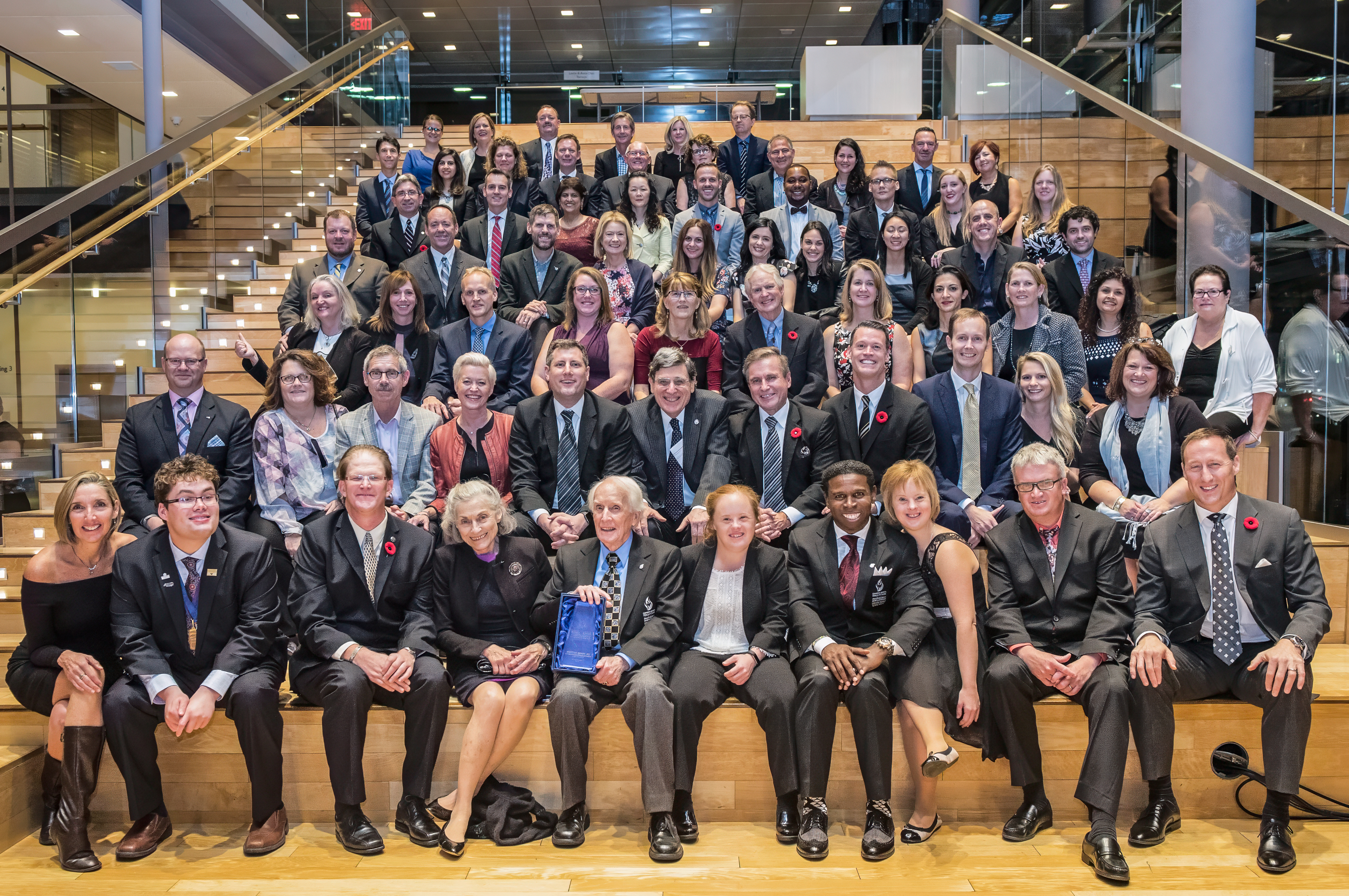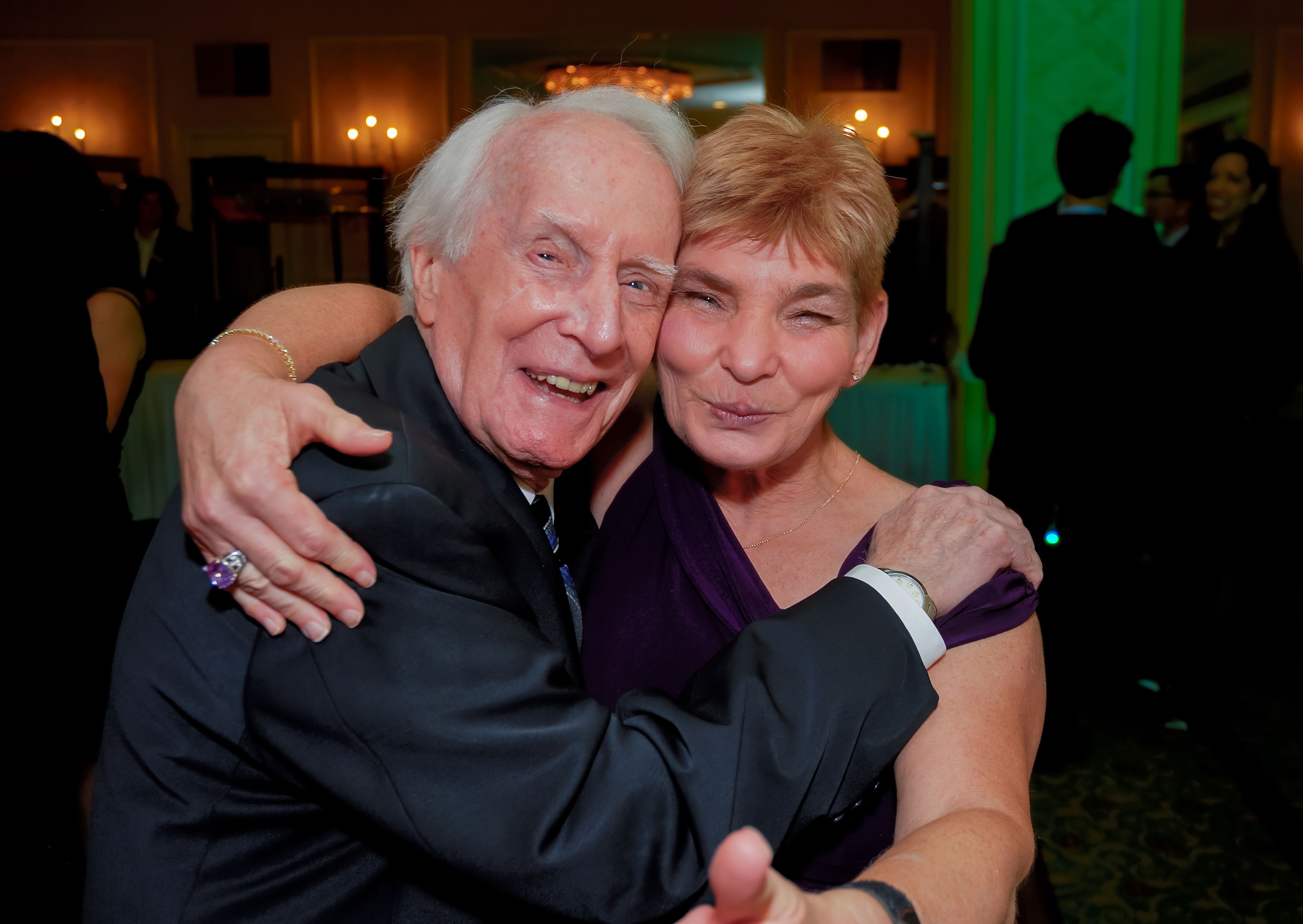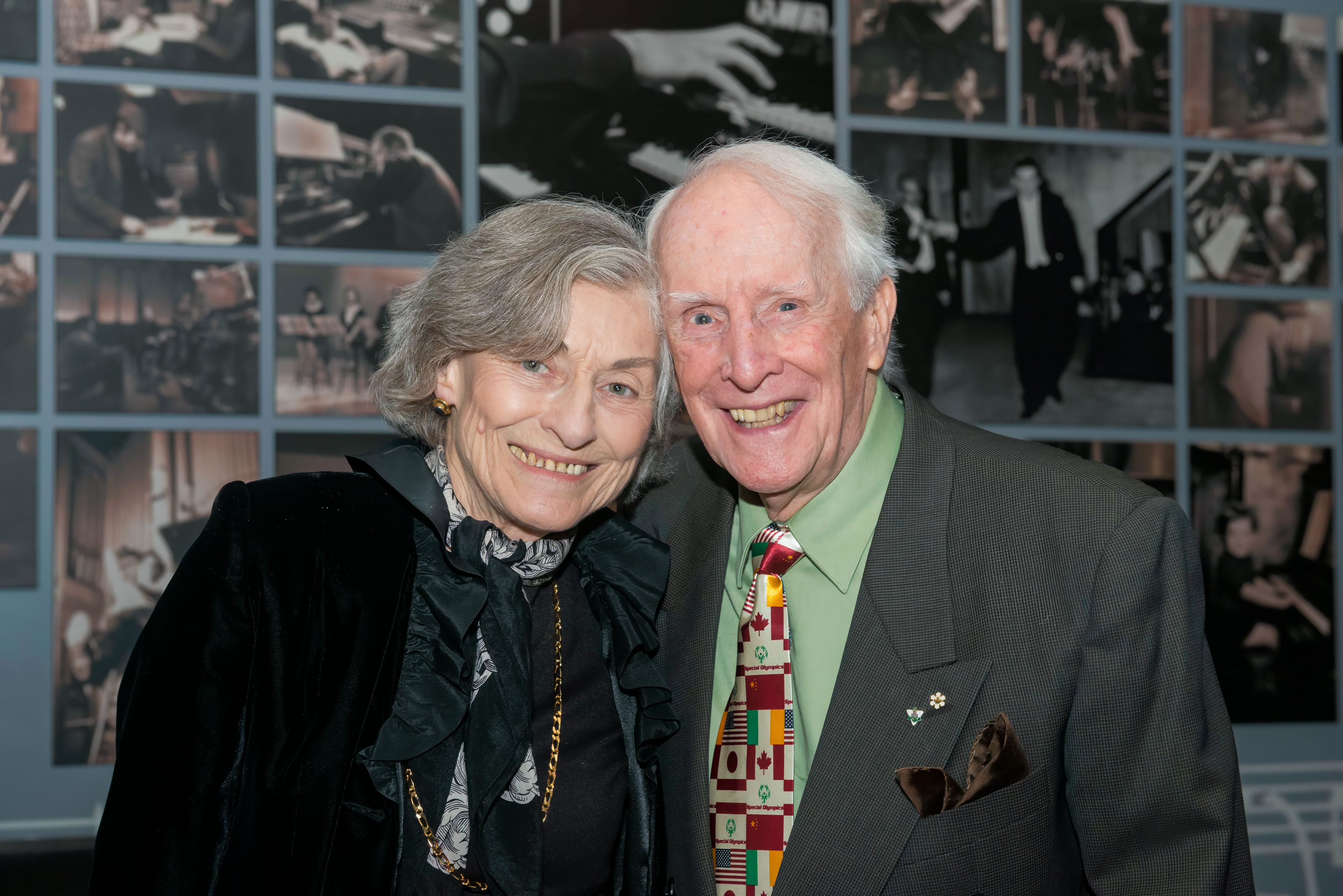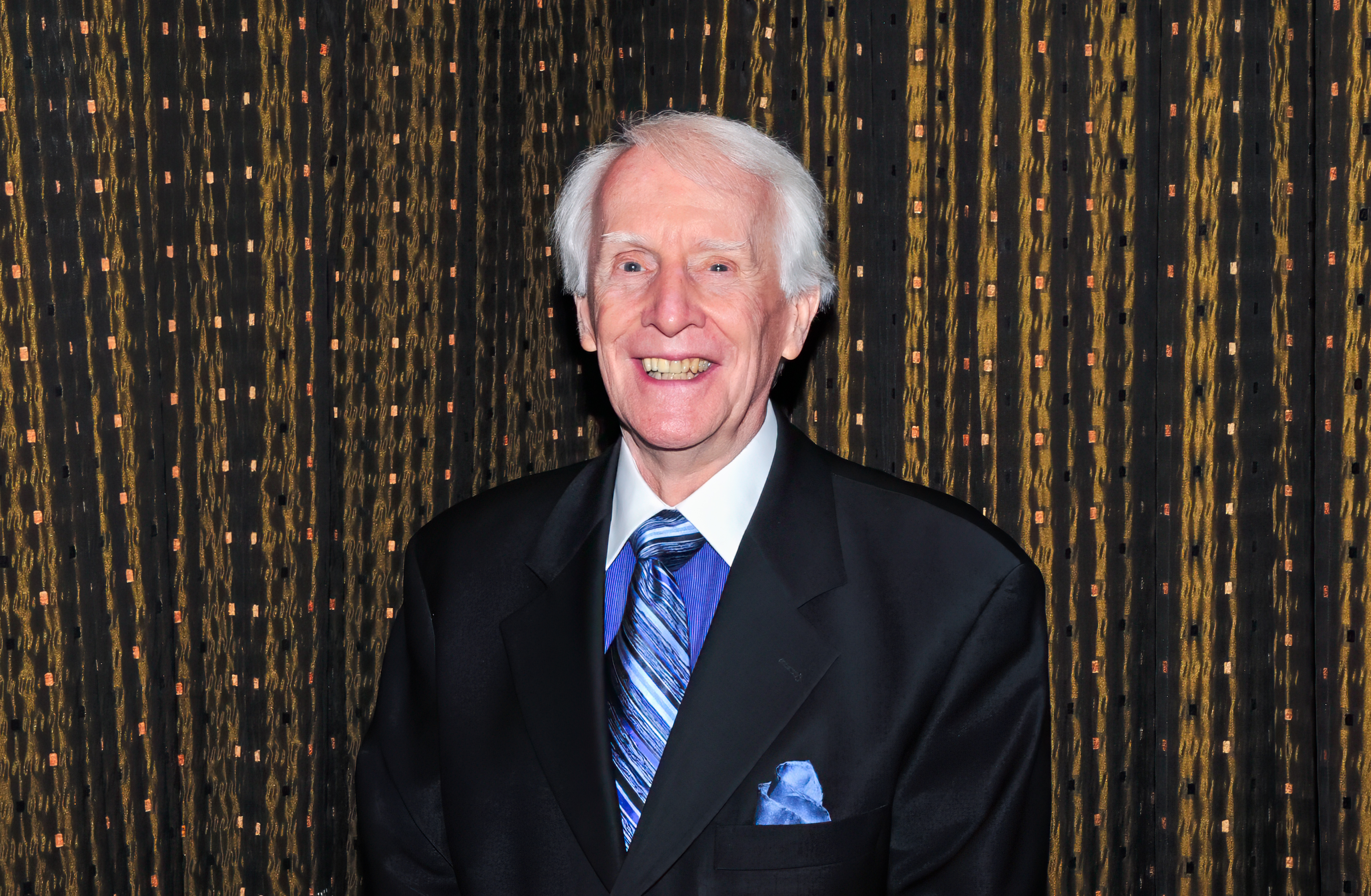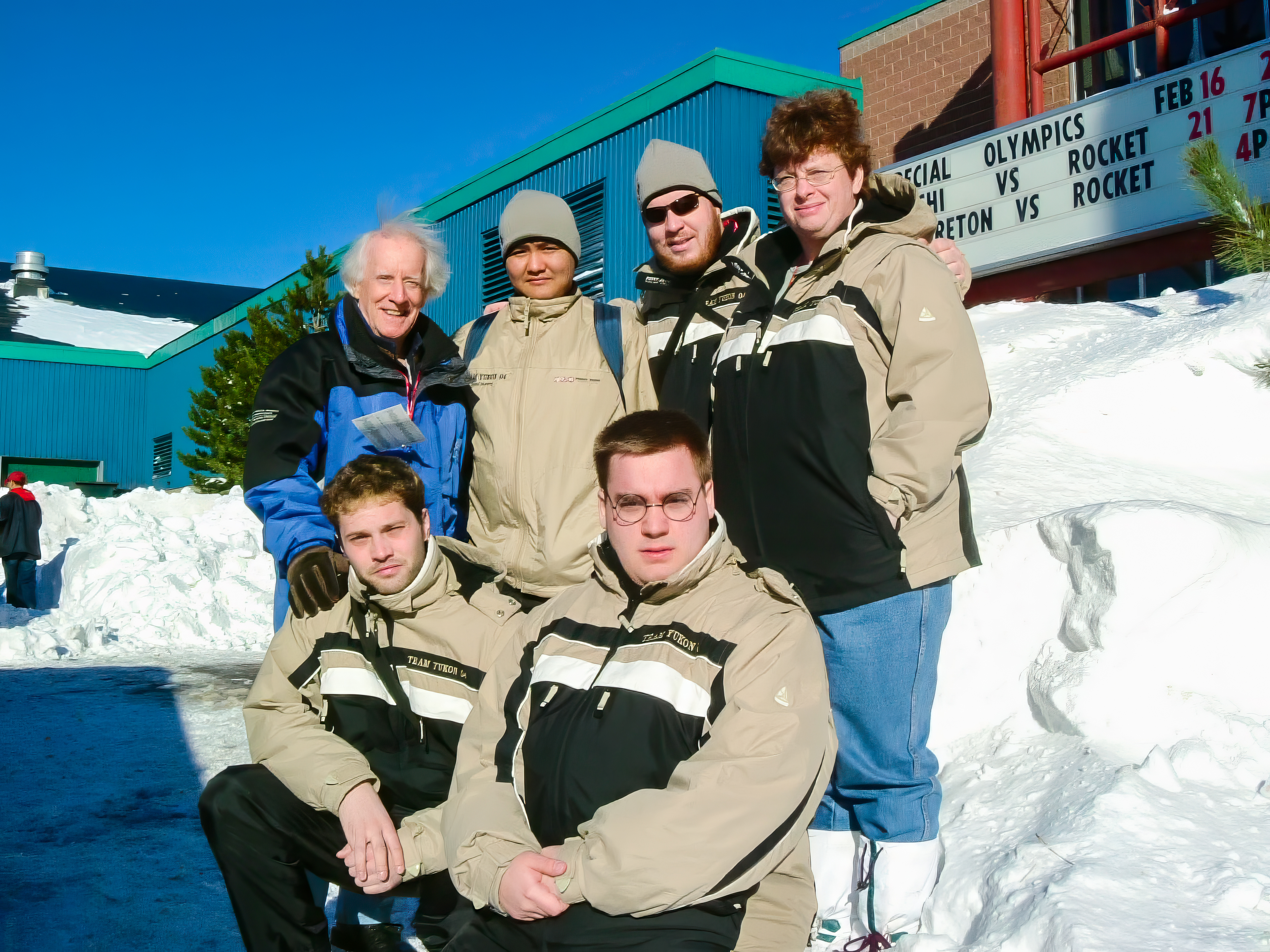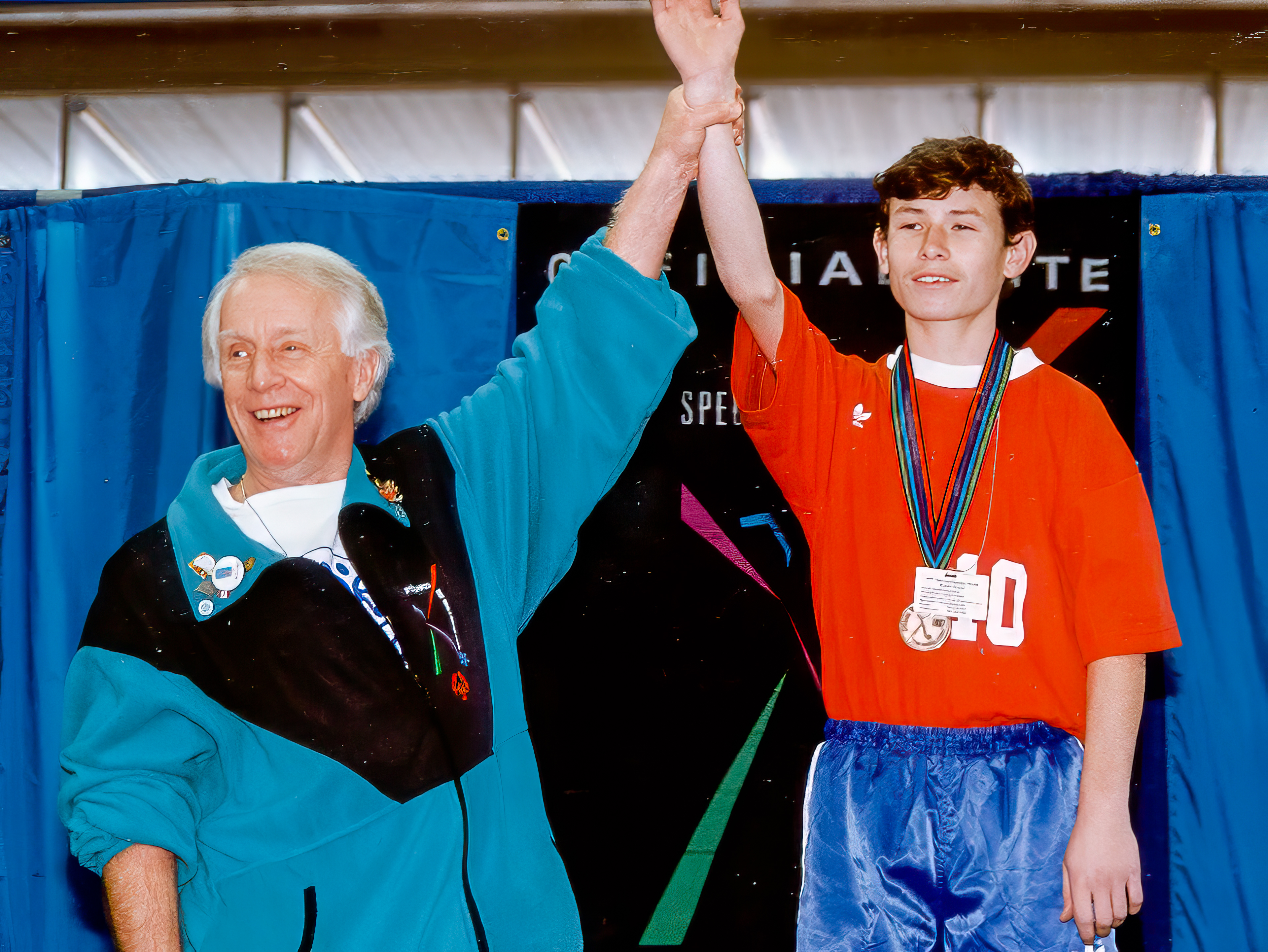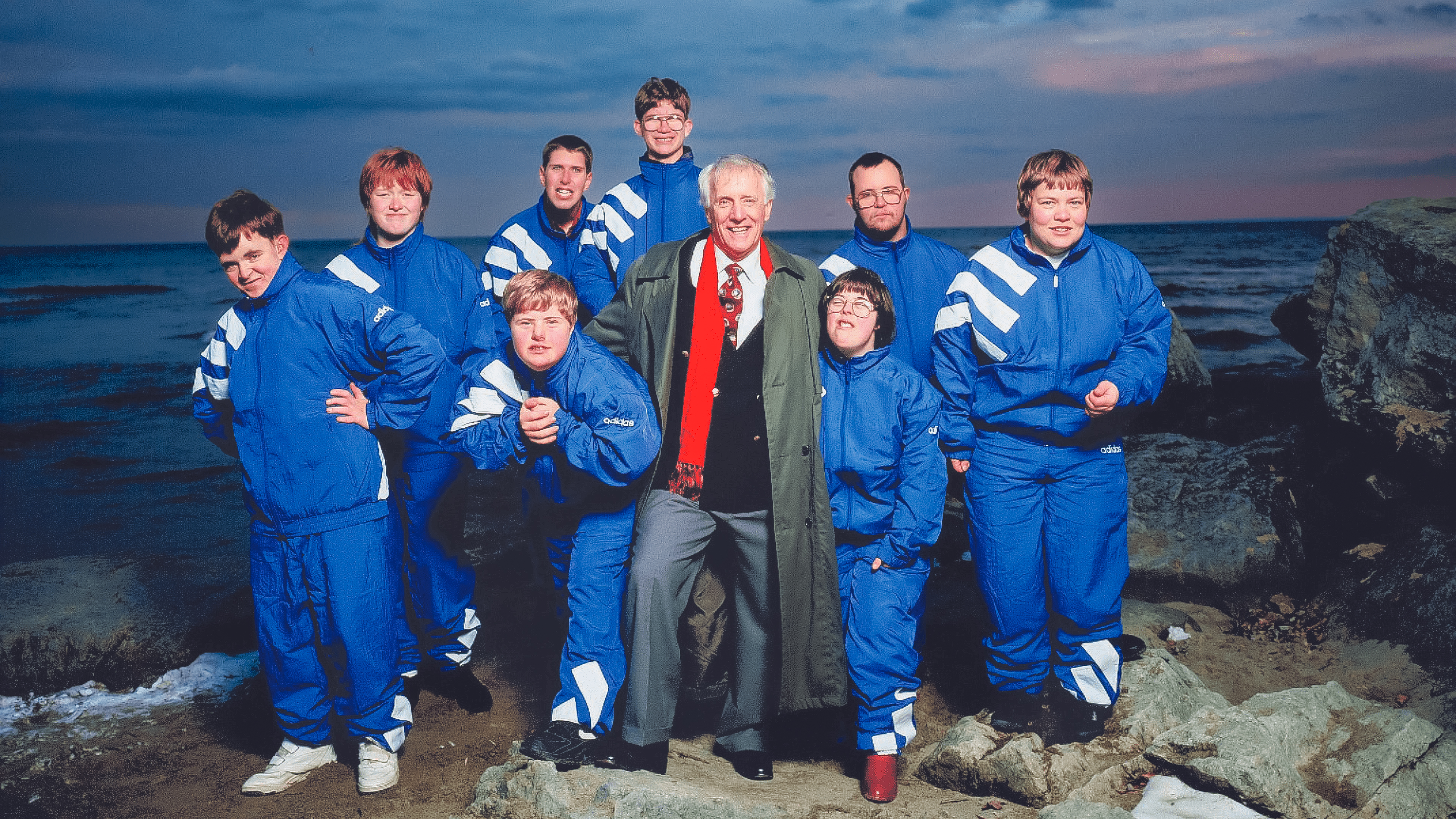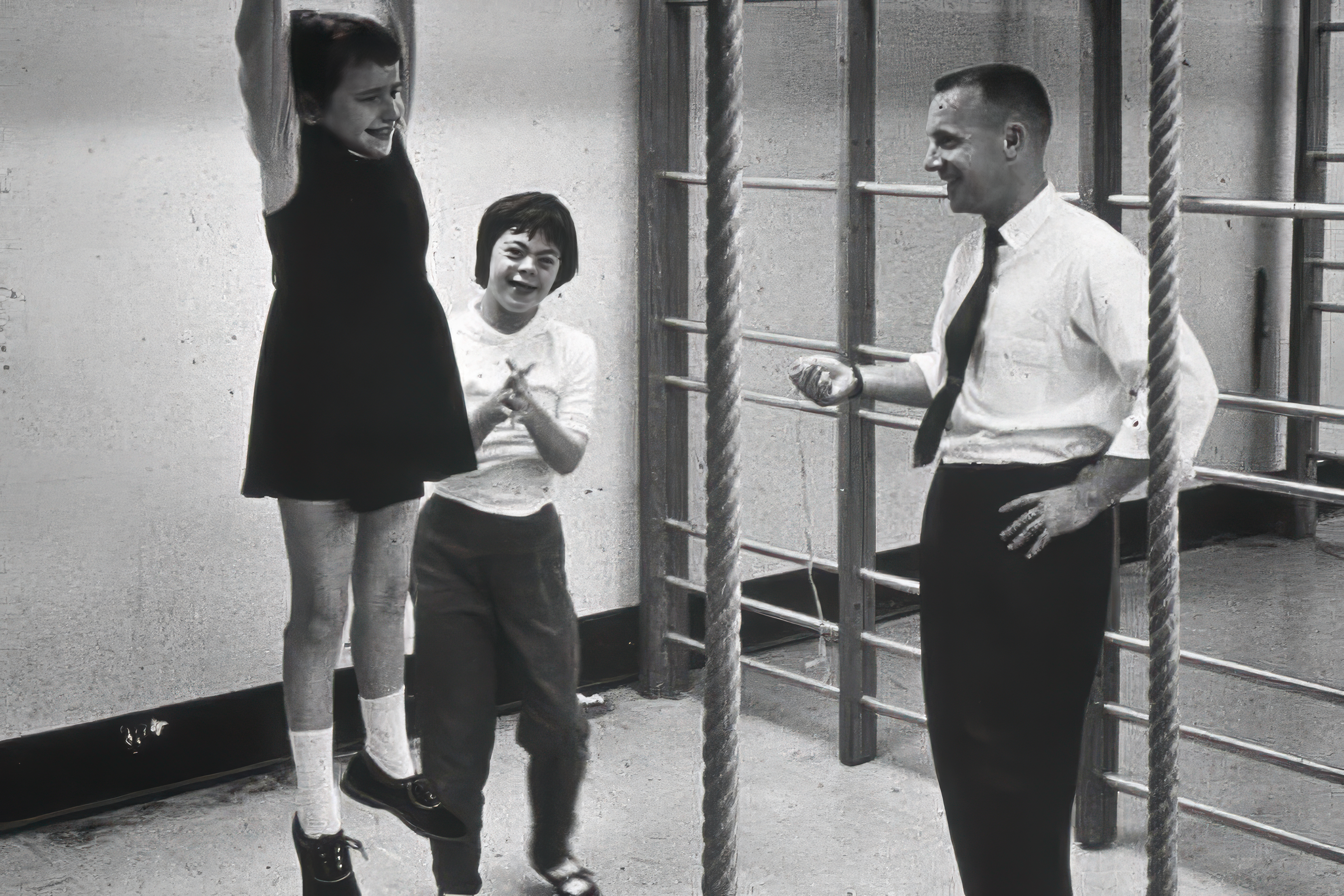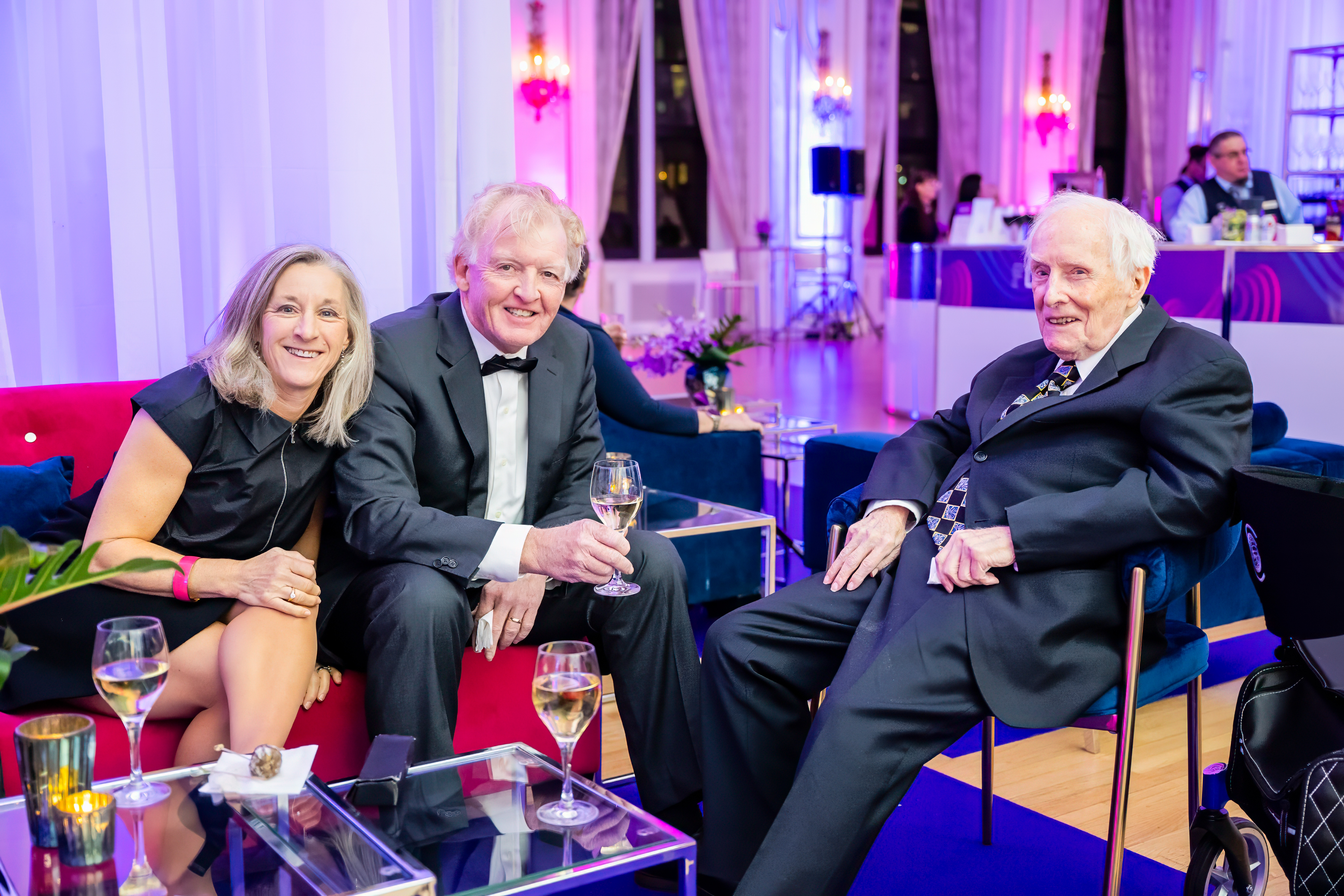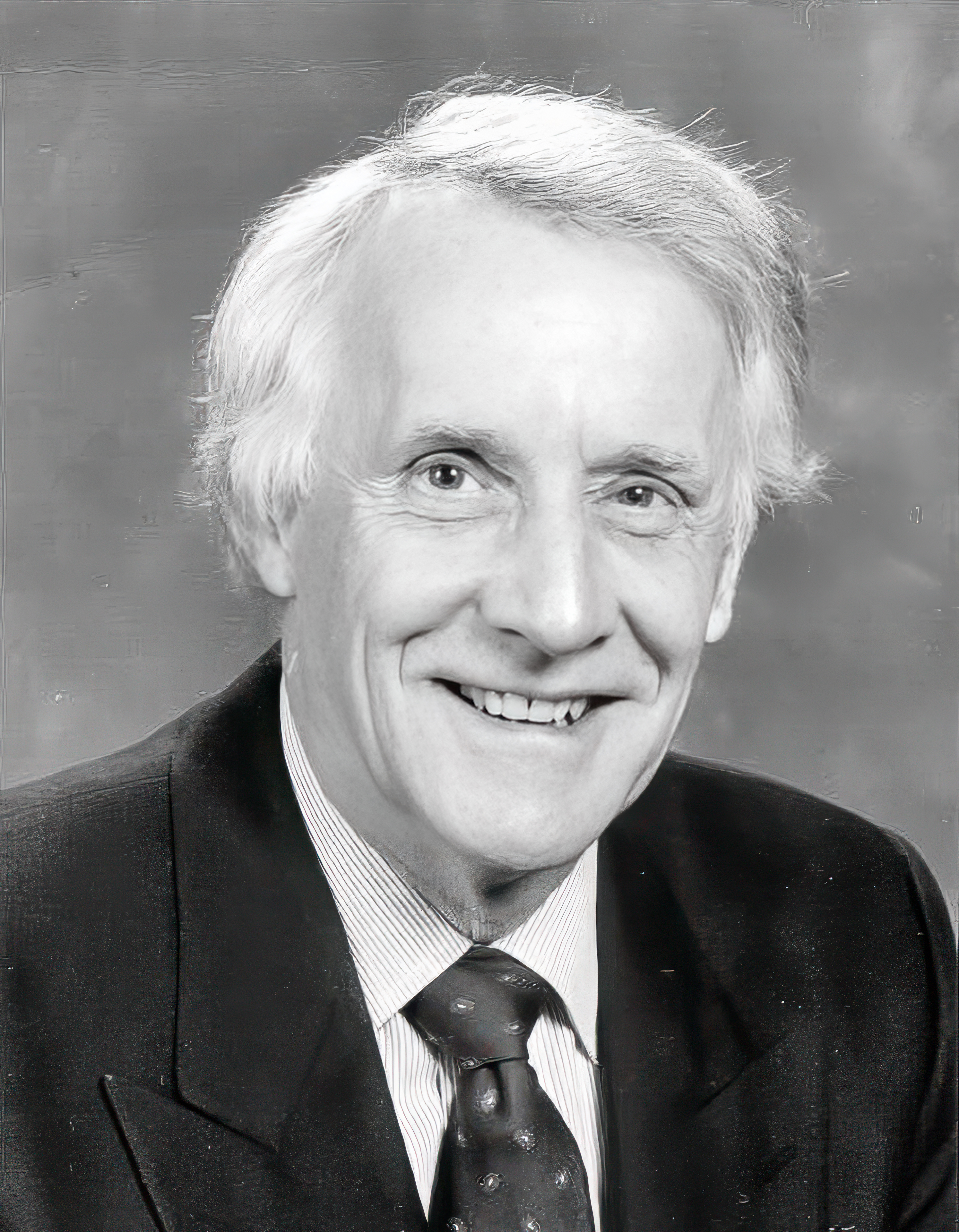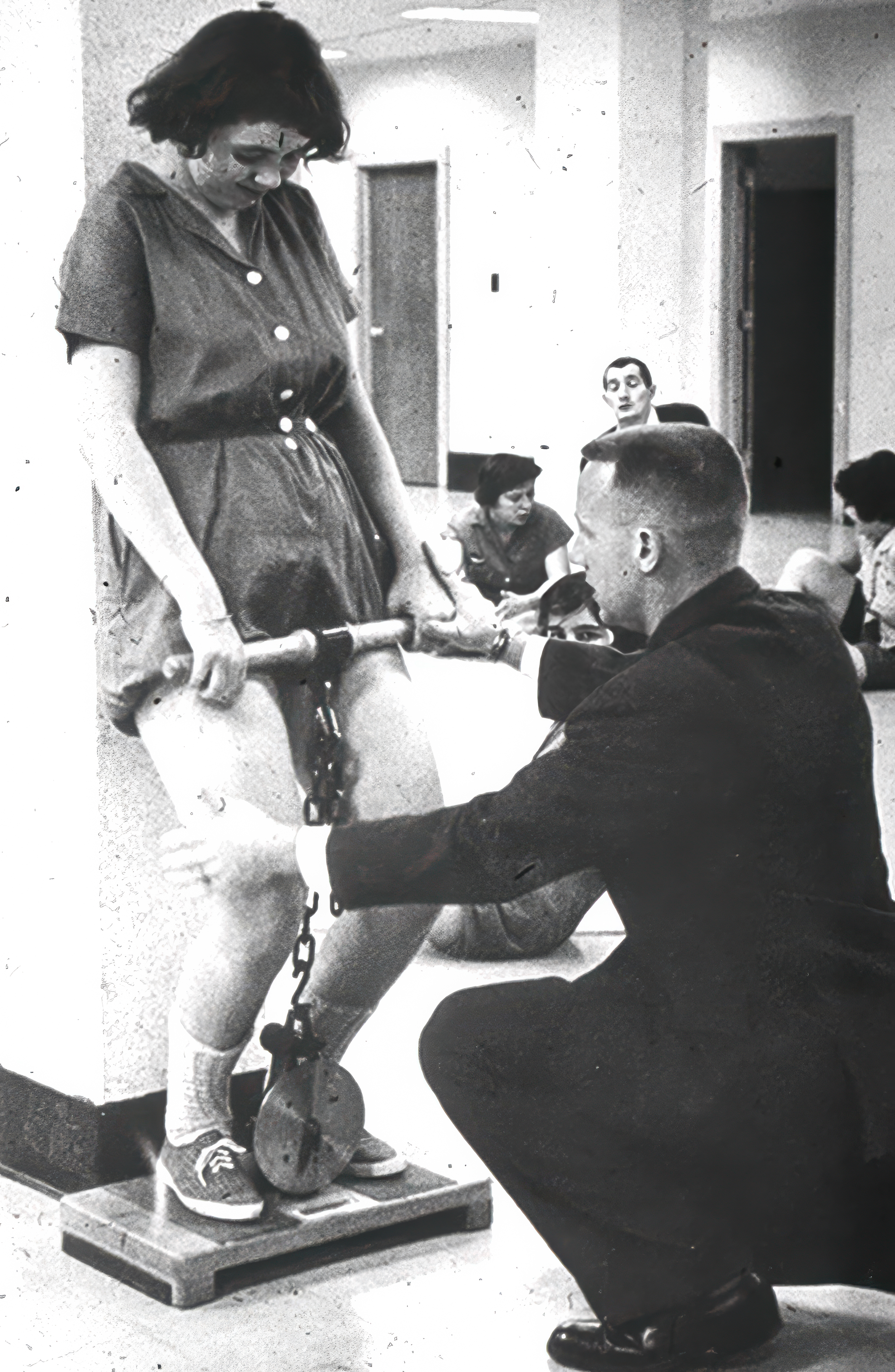Dr. Hayden’s ground-breaking research was the spark that ignited the Special Olympics movement. As a faculty member at the University of Toronto in the early 1960s, his study of children with intellectual disabilities revealed they were half as physically fit as their peers who did not have intellectual disabilities.
It was once assumed that their low fitness levels were directly connected to their disabilities. However, Dr. Hayden’s body of work challenged this mindset, arguing that it was not the disability itself that prevented people from fully participating in play and recreation. Instead, the barriers were social—such as a lack of accessibility or opportunities, as well as stigma and negative attitudes from others.
Through rigorous scientific study, Dr. Hayden proved that given the opportunity, people with intellectual disabilities could acquire the necessary skills to participate in sport and become physically fit.
In other words: Sport could have a transformative effect on the lives of people with intellectual and developmental disabilities.
In 1964, Dr. Hayden published a book that included sample lesson plans for educators. Astonishingly, this publication sold 50,000 copies and caught the attention of Canadian broadcaster and advocate for individuals with intellectual disabilities, Harry "Red" Foster. Together, they embarked on an effort to launch the Special Olympics National Games in Toronto, though their initial endeavors did not come to fruition.
It wasn’t until 1965, when Hayden received a call from the Kennedy Foundation, that his idea started to gain traction. Eunice Kennedy Shriver, sister of U.S. President John F. Kennedy, was running summer camps for individuals with intellectual disabilities and took a keen interest in Dr. Hayden's research.
This collaboration led to the inaugural Special Olympics Games held at Soldier Field in Chicago on July 20, 1968, where athletes from 25 states and a Canadian floor hockey team, comprised of students from the Beverley School, participated. Harry "Red" Foster, witnessing the event, was profoundly moved and declared, "Frank, this is fantastic. We should have this in Canada."
With Foster's support, the first Special Olympics Games in Canada took place in 1969, and Dr. Hayden continued to expand the movement in the United States. He later played a pivotal role in establishing 50 additional Special Olympics organizations worldwide.
"We're all much more alike than we are different,
and sport is a great common denominator."
- Dr. Frank Hayden -
Whether an athlete competing at the Special Olympics World Games, or a five-year-old attending Active Start at a community centre, Dr. Hayden always believed “sport is the answer.”
“My idea wasn’t to find the fastest runner with an intellectual disability,” he said. “It was to make them fitter and healthier, so they have the opportunity to live their potential.”
Throughout his life, Dr. Frank Hayden received numerous awards and accolades for his monumental contributions. In 2019, he was inducted into Canada's Sports Hall of Fame. In 1999, he was appointed an Officer of the Order of Canada. In 2022, he received a promotion within the Order to Companion – the highest level a recipient can receive for Canada’s highest civilian honour.
Archival Work:
In 2018 Special Olympics Canada endowed the Dr. Frank J. Hayden Chair in Sport and Social Impact at Western University.
Along with this endowment was the donation of a large collection of the formative documents that founded the Special Olympics movement worldwide. The collection includes research, correspondence, historical documents and photographs. Highlights of this collection are shown below.
To access the collection requests may be made directly at the link below.

